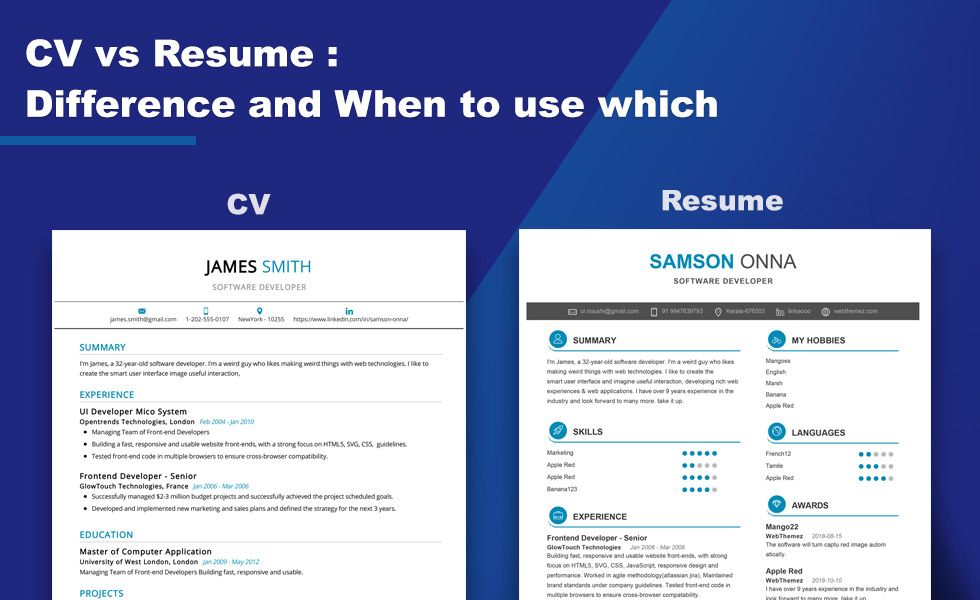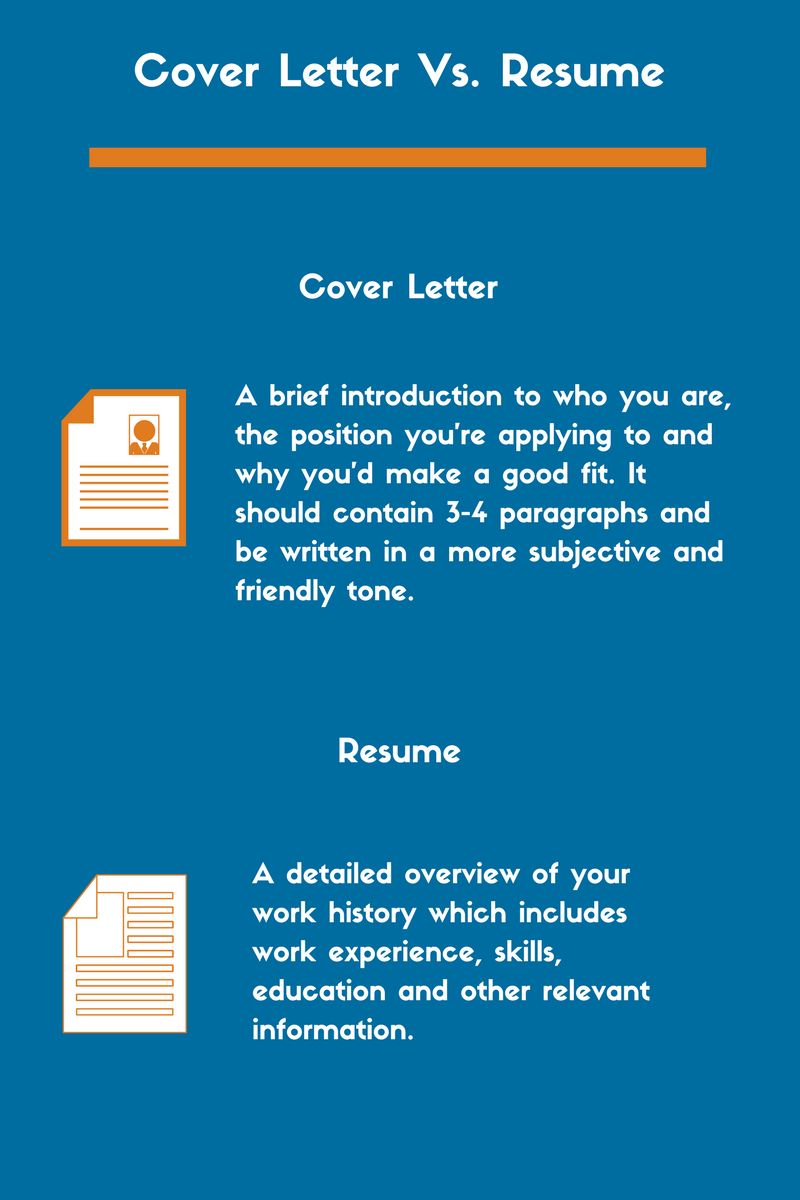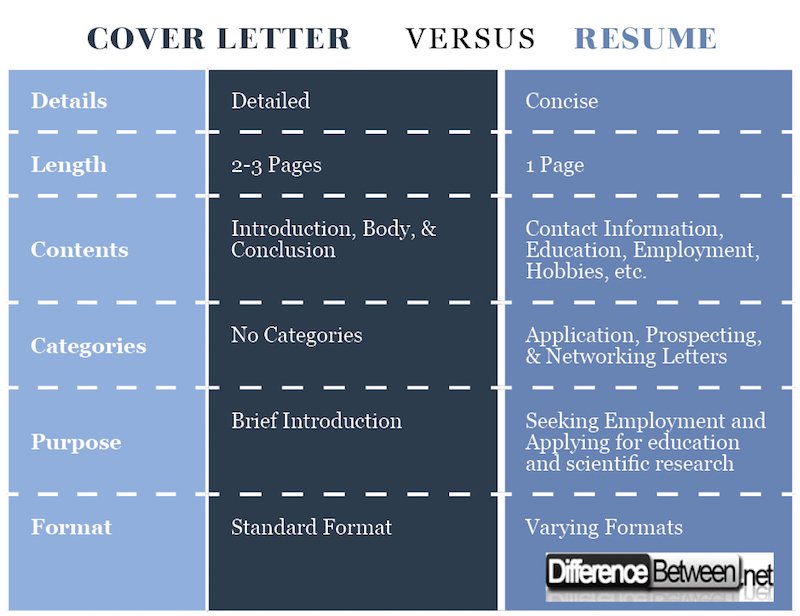Choose From 50000+ Job Description Bullet Points
Our free resume builder software generates thousands of perfectly written work experience bullet points for you to choose from, covering all industries. Just point and click to instantly place the work duties you performed onto your resume in bullet-point format.
Keep in mind that depending on your industry, your resume may need to include additional sections. For example, nurses should include a section about their professional licenses and certifications which you can easily add in our resume builder. Once you know how to make a resume, youll never be far from finding your next job.
Making It All About You
Another common mistake that applicants make is using their cover letter to boast about their talents without acknowledging how they will use these skills to benefit a prospective employer.
The worst thing a candidate can do in their cover letter is make it all about themselves and what theyre looking for, said Ian Yates, co-founder of candidate sourcing platform Fitzii. The best thing to do is focus on why theyll be a great fit, how theyll make a contribution, and what theyve done, or will do, to support .
It is a fine line between confident and arrogant, added Sue Hardek, managing partner at Talentfoot Executive Search & Staffing. She noted that any candidate should avoid overselling him or herself, or being boastful about accomplishments and strengths. Applicants should also steer clear of oversharing personal history, exaggerating or providing false information.
Job seekers who do their homework researching the company, learning about industry trends, and identifying specific ways they can address challenges faced by the business have a much better shot at setting the right tone with their cover letters.
Main Differences Between Resume Vs Cover Letter
At this point, you should have an idea of the basic difference between these two different types of job application documents. In this section, we would take a look at some other factors that differentiate them and their properties.
| Basis of Comparison | |
| More professional toned letter usually written in the third person | Professional with a touch of personality usually written in the first person |
Recommended Reading: How To Email A Resume To A Recruiter
When To Use Cover Letters And Resumes
A lot of confusion regarding cover letters and resumes stem from this aspect when should you use one, or both? Resumes are always required.
Even if they dont, you have to send one.
On the other hand, the need for cover letters isnt as clear. Some employers specifically ask for a cover letter along with the resume in a job application. In those instances, it is a no-brainer you have to craft a cover letter.
If theres no mention of a cover letter in the job application, I recommend you attach one nonetheless. At worst, it simply wont get read.
A Resume Is Written In Point Form With Bullets While A Cover Letter Is Written In Prose With Paragraphs

The first obvious difference is the formatting. While some people like to use some bullets in a cover letter, I dont recommend that because the cover letter should not simply reiterate the same information as the resume, but should be telling an interesting story about you. You do not use personal pronouns on a resume, but you should do so in your cover letter.
Also Check: Typing Skills Resume
A Resume Itemizes Your Employment History And Summarizes The Jobs You Have Held
It also includes the education you have attained, certifications, skills, and other quantifiable information about your background and work experience.
Usually, a resume is written in the third person and uses as few words as possible to summarize the experience. For example, instead of writing I supervised a large team at XYZ company a resume would have a bullet point that says, Supervised 20-person team.
Main Differences Between Cover Letter And Resume
You May Like: Child Acting Resume Template No Experience
Maximum Length Of A Cover Letter
For a cover letter, the ideal length is one page in a word document or PDF file.
Anything more than that and you are bound to lose the interest of the HR person reading it. Avoid long cover letters like the plague.
Even if you are excited about the job and have some big ideas, keep most of it to yourself that is what interviews are for! A formal cover letter is not the place to express everything you have to say.
Cover Letters Allow Employers To Hear Your Voice Understand Your Intentions And Learn About Your Personality Here’s A Guide To Avoiding Cover Letter Mistakes And How To Write A Good One
- Cover letters are written introductions by a job candidate expressing their interest in working with a company.
- A well-written cover letter gives recruiters a better idea of who an applicant is as a person.
- Recruiters are more likely to select candidates to interview based on a cover letter if their experience matches the job requirements.
- This article is for job applicants who want to write cover letters that stand out.
When submitting a job application, your resume can only go so far. Resumes tell prospective employers about your experience and education, but they are essentially fact sheets. A cover letter gives applicants the opportunity to share more detailed information on why theyd be a good fit for a certain role at a specific company.
Heres a guide to what a cover letter is, why it is important, and how to write one with tips from seasoned professionals.
Don’t Miss: How To List Projects On Resume
Short Descriptions Vs A Detailed Biography
A cover letter typically provides concise descriptions of a person’s qualifications, while a CV details a person’s educational and professional history in more depth. It’s important for a cover letter to only include information relevant to a specific job position, as hiring managers may look for certain qualifications while reading them. Academic or research candidates, however, may have multiple skill sets and accomplishments relevant to a professorial or research-related job profession. Hiring committees often appreciate detailed information about a person’s achievements in a field of study to decide if they can add value to an institution.
Related:Q& A: How Long Should a CV Be?
How To Write A Cover Letter In 2021
After weeks of heavy job search, youre almost there!
Youve perfected your resume.
Youve short-listed the coolest jobs you want to apply for.
Youve even had a friend train you for every single interview question out there.
But then, before you can send your application and call it a day, you remember that the job ad requires a cover letter.
Now youre stuck wondering how to write a cover letter…
Dont panic! Weve got you covered. Writing a cover letter is a lot simpler than you might think.
In this guide, were going to teach you how to write a cover letter that gets you the job you deserve.
We’ll cover:
So, lets get started with the basics!
Don’t Miss: Where To Put Magna Cum Laude On Resume
The Format Of A Resume And Cover Letter
Weâve established that the formats of both applications are different.
That doesnât mean they should be completely separate from each other – it still needs to be somewhat consistent.
For example, you should still be using the same font style and font size.
Also, for cover letters, you should always aim for a one-page cover letter and no further than that. One-page resumes are just as effective, and two-page resumes work when you have a lot of experience to talk about.
When sending over your application electronically, the file type for both your resume and cover letter should be sent as a PDF file with an appropriate file name.
What’s Included In A Resume Vs A Cover Letter

There is certain information that’s included on a resume that shouldn’t be on a cover letter:
Resume summary
Your resume should include a well-written summary that highlights some of your major skills, qualifications, and achievements.
Core competencies and skills
You should list out relevant core competencies and skills on your resume. You shouldnât list out all your competencies and skills on a cover letter but you can include some throughout.
Detailed work history
A resume should contain a relevant and detailed work history section. Remember to mention specific accomplishments throughout the resume rather than listing job duties. There could be hundreds of other candidates and you need to show the hiring manager why youâre the best fit. This is best done through showing quantifiable achievements and how you went above and beyond expectations.
A cover letter could mention one or two major achievements, but save the specific details for your resume.
For example, on a cover letter, you could mention how you increased sales by x, but your resume would go into more detail on how you did that.
Education
Your resume should contain a detailed education section where you list degrees, schools you attended and the dates. You could briefly mention your degree and school on a cover letter.
where you list degrees, schools you attended and, the dates. You could briefly mention your degree and school on a cover letter.
Recommended Reading: Conference Presentations On Cv
Cover Letter Vs Resume: Whats The Difference
So, how are a resume and a cover letter different?
While the purpose of both is to prove to the hiring manager that you have what it takes to get the job, they do so in two very different ways.
Basically, you can consider your resume to be a summary of your work and education experience, while your cover letter focuses on how this experience relates to this specific job.
Have you heard that saying in the beauty community that says your eyebrows should be sisters, not twins?
You can apply that same logic to your cover letter and resume.
These two documents should complement each other, not copy each other exactly.
One big difference we can name right off the bat is that pretty much every employer requires a resume for a job application, but not a cover letter.
However, including one always boosts your chances of success .
Now then, to really understand what the difference between a cover letter and a resume is, we will take a quick look at what each of them is at its core.
Ready?
What Is The Purpose Of A Resume
The purpose of your resume is to provide an overview of your professional background.
Resumes are an outline of your professional qualifications and corporate background that prove youâre qualified for the role. This is broken down into different sections, e.g. work experience section, skills section, education section, and more.
In contrast with a cover letter, a resume is more factual and takes a more logical approach towards the job application process.
For nearly every job posting you see, resumes are a mandatory requirement. On the other hand, cover letters can be optional.
Read Also: Activities Section Resume
Cover Letters Complement Your Resume
If you have constructed it correctly, a finished resume can technically be all you need to apply to a job. However, you want to show potential employers that you will go the extra mile for them and ensure that they know just how better suited you are to the position than your competition.
A cover letter expands on the most important information provided in your resume and strengthens it. If your resume already has a strong layout, it is a good outline for your cover letter.
What Is The Purpose Of A Cover Letter
The purpose of a cover letter is to show your hiring managers why youâre the best candidate for the job opening.
Itâs a documented letter thatâs usually sent along with your resume.
Unlike a resume though, with a cover letter you have more room to express yourself personally and to go into detail on some of your personal traits.
Your cover letter can add further description from what youâve mentioned on your resume to give recruiters more insight into your profile and personality. This also helps them determine if you’re a good fit not just for the job itself, but for their specific company too. Itâs especially made clear by seeing whether or not youâre a good match with their values and working environment.
As your resume focuses more on what makes you qualified, your cover letter complements that by showing why it makes you the best candidate.
You might also find our other cover letter guides useful:
Recommended Reading: Babysitting Skills Description
What A Cover Letter Includes
A cover letter is a short three or four paragraph document. It should be written with the assumption that employers will consult your resume to match it to the statement you are making in the letter about your qualifications.
A cover letter will help employers to interpret your background as represented on the resume and will help prove how your previous experiences qualify you for a job.
When you are writing a cover letter for a job, first review the job requirements that are detailed in the job posting. Use your cover letter to explain how you meet those criteria.
Are There Any Examples Of A Good Resume I Can Look At
Yes, we offer an extensive library of free resume examples. Our resume library covers all industries and 90+ job titles. Each sample has been meticulously written by our resume experts to demonstrate what an ideal resume in every industry should cover. If you arent sure what to include in your resume, or if you just need some inspiration to get started, we highly encourage you to visit our free resume example library.
Recommended Reading: How To Describe Excel Skills On Resume
The Cover Letter Is Usually A One
It answers the how and why questions: how the candidate heard about the position and why they are the perfect candidate for the role. While the resume lays out ones skills, education, and experience, the cover letter expands on how the experience meets the companys needs.
It also showcases how the candidates background aligns with the position and what the employer can expect from the candidate. The cover letter draws attention to the candidates key contributions and what makes them uniquely qualified for the job.
While the resume might have gaps in employment, the cover letter gives the candidate an opportunity to answer potential questions that could arise because of these gaps. Or, it allows them to explain any omissions from the resume.
Robyn L. Coburn
Writer | Artist, Work in Production | Owner, Robyn Coburn Resume Review
Summary Of Cover Letter And Resume

- Cover letters and resumes are formal documents used in a job application that all prospective employees should strive to understand.
- Understanding the differences between a cover letter and a resume positions an individual with a good chance of getting an interview appointment.
- All people should practice how to write formal and professional cover letters and resumes because they play a significant role in creating perspectives about you and they may give or deny you an employment opportunity.
Read Also: How To Add Bilingual To Resume
Details Included In Cover Letter And Resume
One of the main difference between a cover letter and a resume is the number of details contained in each document. A cover letter is less detailed with much of the information reflecting what is on the resume. On the other hand, a resume is much detailed with every information present in this document fully elaborated concerning details and achievements. It is worth noting that cover letters only contain salutation, introduction, body, and conclusion while at the same time referring the reader to get detailed information from the resume.
Difference Between A Cv And A Cover Letter
Although there are similarities between a CV and a cover letter, they are two separate documents which should not be confused when applying for a job. Read the following information on cover letters and CVs to get a better idea of the difference between a CV and a cover letter, how to write each one and when to use them.
A cover letter is used as an introduction to your job application and a way of presenting yourself to the recruiter or hiring manager. This presentation letter should ideally be no longer than one A4 side and cover letter format should be clear, well organised and include an introduction, main body of text and formal closing.
A particular difference between a CV and cover letter is that the details that you include on a cover letter should not be as expansive as a CV. Instead, the key skills, knowledge or experience that make you a strong candidate for the job post should be highlighted and used to reinforce your compatibility with the job role. Your cover letter is read by recruiters before your CV, so its crucial that it is captivating and interests recruiters. Mention an achievement that youre proud of or a particular skill which would help you to do the job well. This will give recruiters a positive attitude towards your profile before they have even looked at your CV and it will also make them want to carry on reading!
Recommended Reading: How To Upload Resume On Indeed